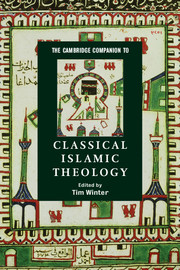14 - Epistemology and divine discourse
from Part II: - Themes
Published online by Cambridge University Press: 28 June 2008
Summary
INTRODUCTION
From the time of Aristotle to the present, philosophers have assumed that there is an intimate connection between literal meaning and truth. Recent discussions in the West, however, have challenged this link and its corollary that non-literal meaning is a departure from truth. A similar challenge was offered in classical Islam. Its origin is traceable to the “consensus of Muslims that the Creator of the world is a speaker (mutakallim)” whose discourse consists of statement (khabar), command (amr), prohibition (nahy), question (istikhbār) and other such elements. Divine utterances, in other words, come in a number of varieties, distinguishable by what contemporary linguists call their “illocutionary force”. But if divine discourse consists of specific speech-acts, one would expect it to portray the same features as spoken human language. Such force after all is a property all spoken utterances bear and a condition for understanding any one of them. If this is true, how can one maintain the traditional link between literal meaning and truth? Certainly, it is difficult to imagine well-established conditions for the truth of a command (amr), for example. Indeed, there is an entire range of divine utterances that do not describe anything to which truth-conditions can be applied. Rather, they constitute actions in themselves or speech-acts. This includes utterances that fall under the rubric of figure (majāz), such as metaphor and metonymy.
- Type
- Chapter
- Information
- The Cambridge Companion to Classical Islamic Theology , pp. 288 - 307Publisher: Cambridge University PressPrint publication year: 2008
- 2
- Cited by



